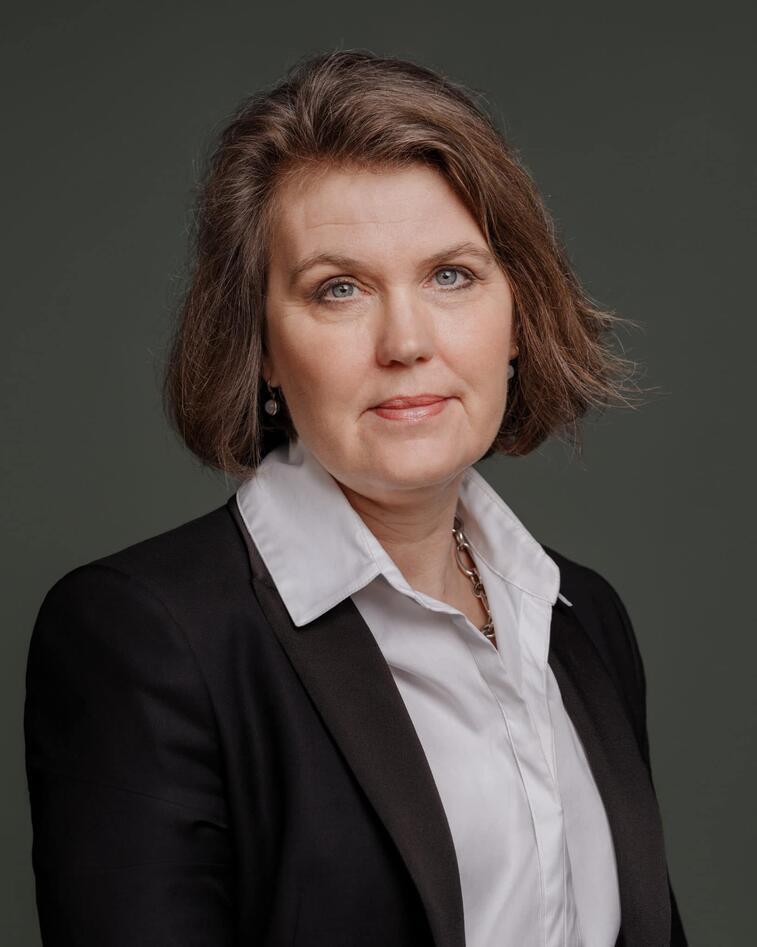Seminar om felles innkjøp av energi - konkurannserettslige barrierer og geopolitiske implikasjoner
Den 9. juni holdt BECCLE og Forskergruppen for Naturressurs-, miljø- og utviklingsrett et seminar om felles innkjøp av energi i Europa, med et særlig fokus på konkurranserettslige barrierer og geopolitiske implikasjoner. Seminaret ble holdt på engelsk.

Hovedinnhold
The idea for an “EU Energy Platform” was already mentioned European Commission (EC) in March 2022 and further fleshed out in its REPower EU Communication of 18 May. RePowerEU is intended to establish bilateral negotiations with major gas producers to ensure diversification and smart risk management to ensure gas supply on favourable conditions for all buyers across the EU and the Western Balkans and the three associated Eastern Partners, i.e., Georgia, Moldova and Ukraine. The EU Energy Platform can function as a voluntary joint purchasing mechanism for the purchase of gas, LNG and hydrogen.
The EU Energy Platform will aim to provide security of supply through:
- Demand pooling to maximise leverage to attract reliable supplies from global markets and at stable prices that reflect the predictability and the size of the common EU market;
- Efficient use of existing gas infrastructure;
- Facilitate long-term cooperation with key suppliers,
The Platform will be responsible for negotiating and contracting on behalf of participating Member States of the aggregated gas demand and competitive release to the market’ and it will be also open for Western Balkan countries. Although it is not clear yet which legal form the mechanism will take the Commission has proposed that the joint purchasing mechanism could take the form of a Joint Venture or a business-owned entity.
The BECCLE seminar focused on the pros and cons of joint gas purchasing from the perspective of competition law and economic policy.
Prof Leigh Hancher outlined the history of various efforts to establish joint purchasing of gas in the past from and then went on to map out the current developments, emphasizing that one of the big questions related to the joint purchasing mechanism is how it will work in practice, and in particular whether its activities would be confined to the co-ordination of upstream purchasing from third country suppliers or whether the platform could become more actively involved in downstream distribution.
Ass. Prof. Ignacio Herrera Anchustegui introduced the CJEU’s jurisprudence and European Commission decision practice distinguishing joint purchasing from buyers’ cartels. He pointed out that buyers’ cartels tend to fix prices, limit output and share markets or customers. There is an additional danger that they coordinate competitive behavior upstream and/or downstream through exchange of information.
The draft of the EC’s Horizontal Guidelines (or “the Draft”) currently under review, has also introduced a new section explaining the distinction between joint purchasing and buyer cartels. The Draft confirms that “joint purchasing arrangement” as those contracts “normally do not amount to a restriction of competition by object if they truly concern joint purchasing.
As Professor Lars Sørgard of the Norwegian School of Economics and BECCLE explained, traditionally economists more concerned about seller power than buyer power, given that seller power, for example price fixing, can lead to higher prices to buyers/consumers whereas buyer power can imply that input prices are reduced, and passed on to the consumers. However, under conditions of oligopoly and with negotiations, there are risks of spillover to prices for gas users. An oligopsony might be lower input prices, but there are no guarantees that it leads to lower prices to final gas users.
Monika Syrdal, a partner at Hjort focused on the practical issues raised by joint gas purchasing. As she observed, there might be some advantages if the joint purchasing arrangements could be structured as a full function joint venture under the Merger Regulation. That would bring legal certainty but at the same time the so-called ‘full function requirements‘ may be difficult to fulfill. The establishment of jointly controlled undertaking takes time and the notification and approval under the Merger Regulation takes time. She recommended that the EC and the EEA should regulate or issue guidelines to create safe harbours for companies interested in joining purchasing platforms.
In connection to the need for certainty, the Commission has indeed indicated that it may, if necessary, issue guidance by 1 August 2022. That guidance if issued will probably be only informal. In the meantime, energy companies – whether buyers or sellers- intending to collaborate with an LNG purchasing platform or with any other voluntary mechanism for the joint procurement of natural gas will still be expected to undertake a self-assessment to ensure full compliance with EU competition law.
Subsequent Developments at EU level
The European institutions have continued to be very active in the months of June and July and have issued new measures to deal with the gas crisis. In the meantime, 12 Member States already suffer from full or partial disruption of gas supply.
A new Storage Regulation
On 27 June 2022 the EC adopted a regulation aiming to ensure that gas storage capacities in the EU are filled before the winter season and can be shared between member states in a spirit of solidarity, despite disruptions in the EU’s gas supply. The Rregulation – which is expected to enter into force in the next weeks- provides that underground gas storage on member states’ territory must be filled to at least 80% of their capacity before the winter of 2022/2023 and to 90% before the following winter periods.
Overall, the EU will attempt collectively to fill 85% of the total underground gas storage capacity in the EU in 2022. Given that supplies of Russian gas to various Member States as well as gas companies are being drastically cut, the EU considers that storage buffers need to be in place to cope with supply disruptions. Member states are given a considerable range of options on how to meet these targets but two possible measures from the menu are worthy of comment from a competition law angle (see its Article 6b). These are the use of coordinated instruments, such as platforms for the purchase of LNG, with other Member States, and/or using voluntary mechanisms for the joint procurement of natural gas.
The Regulation comes with the express caveat that these measures ‘shall not unduly distort competition or the proper functioning of the internal market in gas or endanger the security of gas supply of other Member States or of the Union’.
Regional Platforms and Task Forces
There are now two regional groups set up as part of the EU Energy Platform: South-East Europe (Bulgaria) and Central-Eastern Europe (Austria, Czechia, Germany, Croatia, Hungary, Italy, Poland, Slovenia, Slovakia, Ukraine, Moldova).
The South-East Europe regional group agreed to an action plan, which covers the following:
- gas demand needs of the region, including demand reduction potential via electricity
- infrastructure opportunities and addressing outstanding issues
- gas supply options
Other regional task forces including North-West, South-West and the Baltics are planned. The regional task forces also cooperate with the contracting parties of the Energy Community (find a summary here).
Save Gas for a Safe Winter – a new draft Regulation and an Action Plan
On 20 July, Commission presented the Communication on “Save Gas for a Safe Winter”. In view of the upcoming winter season and the risk of further gas supply disruptions from Russia, it proposes a new Council Regulation on “Coordinated Demand Reduction Measures for Gas” with the aim to reduce gas use in the EU by 15% until next spring, as well as a “European Gas Demand Reduction Plan” to advise Member States on which measures to implement in order to reduce gas demand.
The proposed demand reduction Regulation sets a voluntary target for all Member States to reduce gas demand by 15% from 1 August 2022 to 31 March 2023. This should also contribute to the realization of the 80% gas storage target by 1 November and ensure safe storage levels for the upcoming winter. Member States would be free to choose the appropriate measures to reduce gas demand. In case of an exceptional supply disruption, the Commission could declare a ‘Union Alert’, in agreement with Member States, imposing a mandatory gas demand reduction and make the 15% target mandatory.
The accompanying Action Plan provides guidelines for Member States on how to reduce gas demand and achieve the 15% target. The Action Plan sets voluntary measures, such as fuel switching measures from gas to alternative fuels, incentivizing consumption reduction from industries with market tools, and savings in heating and cooling. For instance, before considering curtailments, Member States should exhaust all fuel substitution possibilities (e.g., renewables, coal, oil or nuclear), launch awareness campaigns to promote reduction of heating and cooling, and incentivize energy reduction by industries. The guidelines provide targeted obligations in case the ‘Union Alert’ would be triggered and indications on the most critical customers and installations to be prioritized in case of disruption such as targeted reduction of heating and cooling of temperature and water in public buildings, office buildings, shopping centers and public spaces. Specific consumer groups that do not have the means to ensure their own supply in case of shortages, such as private households and essential social services, are considered ‘protected consumers’.
The Action Plan proposes several market-based instruments to reduce demand and prepare for shortage: These include auctioning or tender systems, interruptible contracts, swap contracts between industrial consumers and demand-side flexibility in electricity.
The new Plan also raises competition law and policy issues in recommending such swap contracts between large customers. These industrial customers could agree in advance contractual swaps of their production from a region exposed to disruptions to a region less exposed in case of large shortage. In an “alert” or “EU emergency” crisis level, the producer located in the region less affected by gas shortage would guarantee the supply of the production for the producer that had to be halted due to shortage of gas in the region affected. In turn, such a swap would protect the site and the region affected from unplanned forced curtailment.
The EC observes that: ‘Such cooperation between undertakings would, in principle, not be considered problematic under the EU competition rules to the extent that it is:
- designed and objectively necessary to address the shortage of gas linked to a declared “alert” or “emergency situation” on one or more European gas markets,
- temporary in nature (i.e. only applied as long as the alert or emergency situation persists) and
- not exceeding what is strictly necessary to achieve the objective of addressing the shortage of gas linked to a declared ”alert” or emergency situation on one or more European gas markets.”
This too is a matter for self-assessment for the companies concerned albeit that the Commission indicates that its services stand ready to provide informal guidance to companies considering such cooperation.



